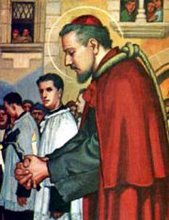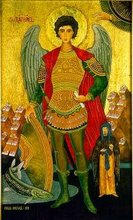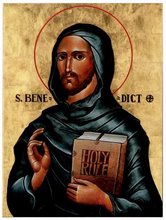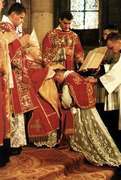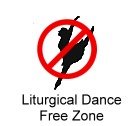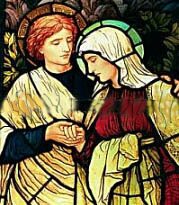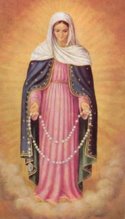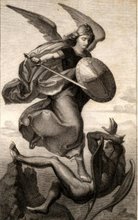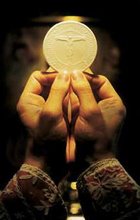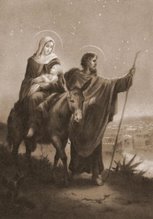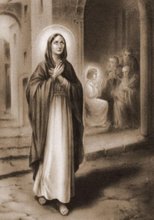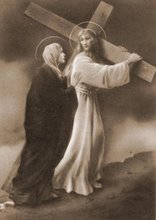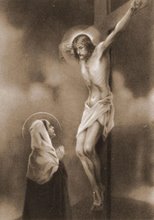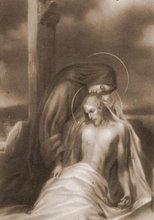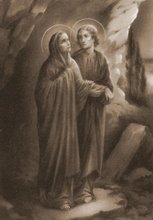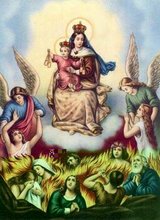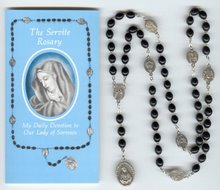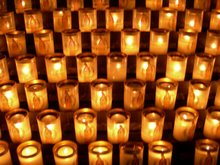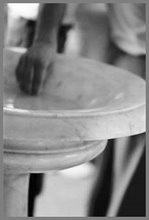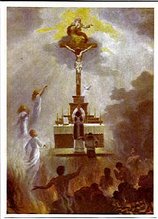
This is by far my favorite image of St. Edmund martyr from the famous "Wilton Diptych" This post will focus on this beautiful and moving piece of art. If you are a total nerd like me who loves the Catholic church and her saints, medieval English history and art - this post is for you! :)
From Wikipedia: "The Wilton Diptych (c.1395-1399) is a small portable altarpiece of two panels. It is an extremely rare survival within England of late Medieval religious painting.
The diptych was painted for King Richard II of England who is depicted kneeling before the Virgin and Child in what is known as a "votive portrait".
The painting is considered an outstanding example of the International Gothic style and possibly of English art. It belongs to the National Collection and is currently housed in the National Gallery, London."
Here is entire left side of the diptych:
 "... the kneeling King Richard II is presented by the Saints John the Baptist, Edward the Confessor and Edmund the Martyr. In the right hand panel the Virgin Mary with the Christ Child in her arms is surrounded by eleven angels, against a golden background and field of delicately coloured flowers."
"... the kneeling King Richard II is presented by the Saints John the Baptist, Edward the Confessor and Edmund the Martyr. In the right hand panel the Virgin Mary with the Christ Child in her arms is surrounded by eleven angels, against a golden background and field of delicately coloured flowers." Interpretation: The identity of the kneeling king is known because the angels surrounding the Virgin are wearing the livery of Richard II, the White Hart, which also appears in the brocade of the left panel and the outside of the diptych. As Richard kneels, the Christ Child reaches towards him in benediction and also reaches towards the pennant held by an angel, and significantly placed between them. This pennant is the symbol of Richard's kingship and of the Kingdom of England as a whole, It bears the Cross of St. George, the symbol of England and furthermore surmounting the staff is an orb on which is tiny map of England.
Interpretation: The identity of the kneeling king is known because the angels surrounding the Virgin are wearing the livery of Richard II, the White Hart, which also appears in the brocade of the left panel and the outside of the diptych. As Richard kneels, the Christ Child reaches towards him in benediction and also reaches towards the pennant held by an angel, and significantly placed between them. This pennant is the symbol of Richard's kingship and of the Kingdom of England as a whole, It bears the Cross of St. George, the symbol of England and furthermore surmounting the staff is an orb on which is tiny map of England.
All three saints who present the kneeling Richard to the Virgin and Child are believed to have been venerated by the king, as each has his own chapel in Westminster Abbey. Each saint holds the symbollic attribute by which they are recognised in art. Edmund the Martyr, who stands to the left, holds the arrow which killed him in 869, while Edward the Confessor, at the centre, holds the ring he gave to a pilgrim who transpired to be the disguised John the Evangelist. John the Baptist (right) holds his symbol, the Lamb of God.
The image on the left makes reference to King Richard's birth on 6th January. This is the feast day that Christians celebrate Epiphany, when Christ was adored by three kings and also the baptism of the adult Christ with John the Baptist shown touching Richard's shoulder.
John the Baptist was Richard's Patron Saint, and Saint Edward and Saint Edmund had both been English kings. Richard had a special devotion to Edmund, who with St. George is one of the patron saints of England.
The painting is indicative of both Richard's belief in his divine right to rule and his genuine Christian devotion. It also importantly symbolises (in the form of the Pennant), Richard II giving his kingdom into the hands of the Holy Virgin, thereby continuing a long tradition by which England was known as "Our Lady's Dowry" and was thought to be specially under her protection
(source)

































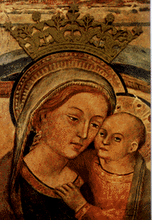
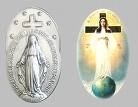

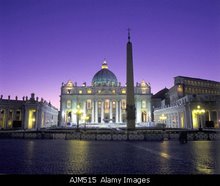

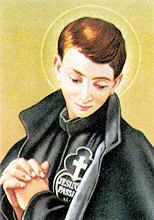
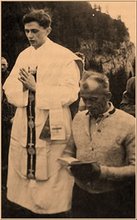
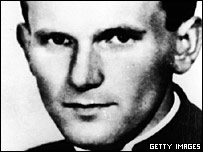
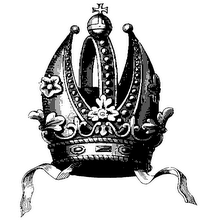
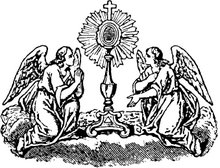
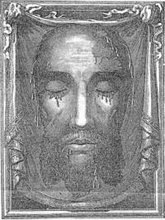
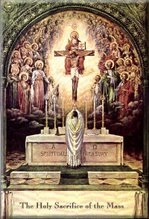

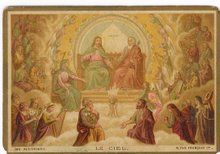



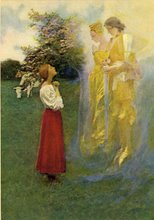
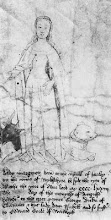01.jpg)


